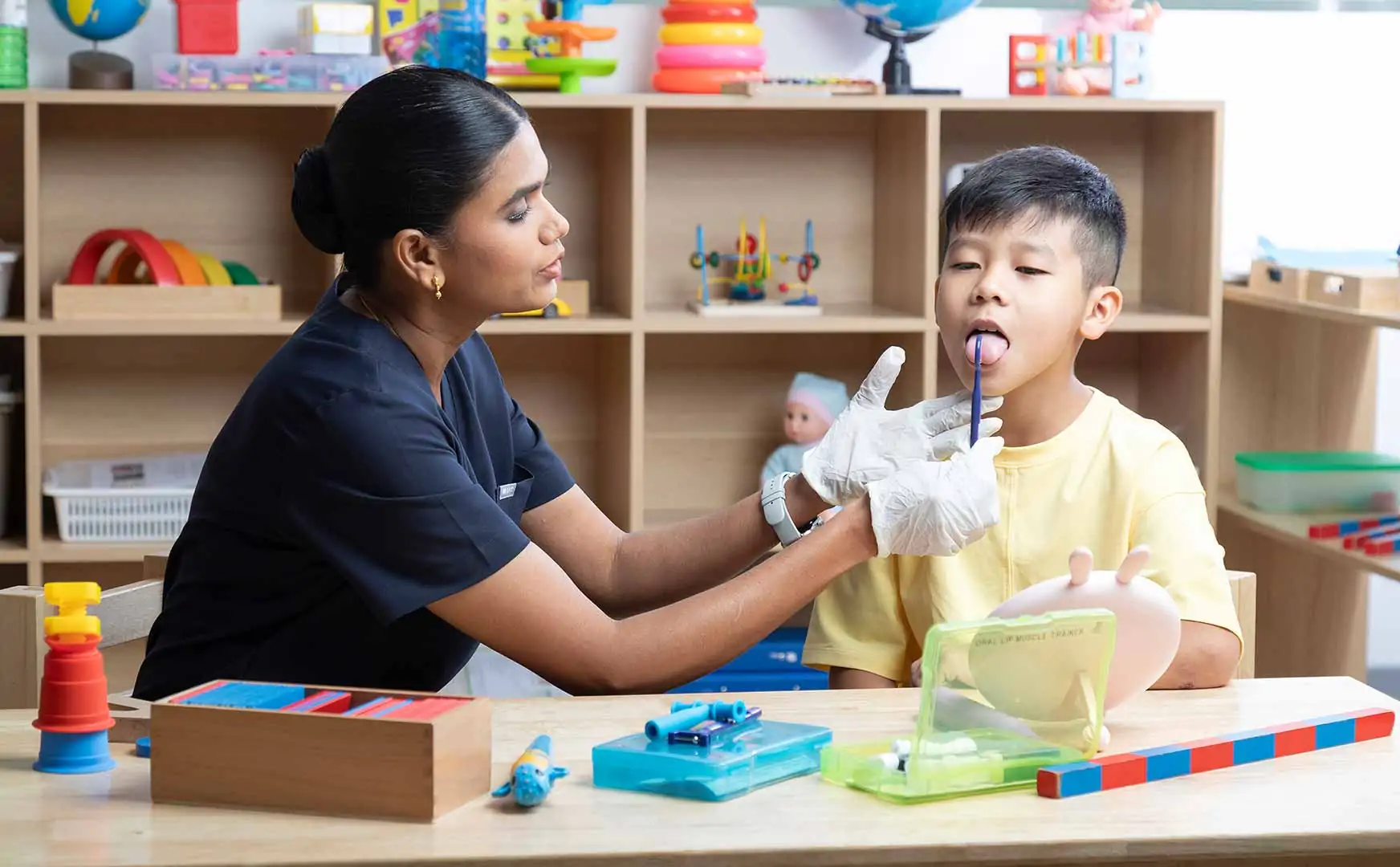A language-rich home environment plays a vital role in supporting a child’s speech and language development. In Cambodia, where many families speak more than one language, parents can nurture communication skills through daily interactions and routines. Building such an environment helps children express themselves clearly, boosts confidence, and enhances their learning outcomes—both at home and in school. For families in Phnom Penh, creating language opportunities every day can make a remarkable difference in early development.
Why a Language-Rich Home Matters
Language isn’t learned only in the classroom. Children build vocabulary, grammar, and conversational skills by hearing and using words in meaningful contexts. A language-rich home provides constant exposure to sounds, stories, and expressions—giving children the foundation for effective communication.
Research shows that children who grow up in homes where adults frequently talk, read, and engage with them develop stronger literacy and cognitive skills. For children with speech or language delays, such exposure reinforces the progress made during professional speech therapy sessions.
Practical Ways to Create a Language-Rich Environment
1. Talk Through Everyday Activities
Narrate your daily routines—whether cooking, cleaning, or driving. Describe what you’re doing and name objects around the house. For example:
-
“Let’s wash the red cup and put it on the table.”
-
“I’m cutting the mango into small pieces.”
This simple habit builds vocabulary, reinforces sentence structure, and teaches descriptive language.
2. Read Aloud Daily
Reading aloud is one of the most powerful tools to develop communication skills. Choose picture books, stories, or even short poems in Khmer and English. Discuss the pictures, ask prediction questions (“What do you think will happen next?”), and encourage your child to retell the story in their own words.
For families seeking guidance on fostering early language growth, explore early intervention and preschool programs at OrbRom Center.
3. Encourage Two-Way Conversations
Children learn best through back-and-forth communication. Ask open-ended questions such as:
-
“What was your favorite part of the story?”
-
“Why do you think the dog is happy?”
Even if their responses are short, praise their effort and build on what they say. This approach motivates children to keep talking and expressing themselves.
Incorporating Play and Interaction
4. Play-Based Language Learning
Playtime offers countless chances to practice speech and language. Games like “pretend restaurant,” “shopkeeper,” or “school” allow children to use new words naturally. Parents can model phrases such as, “May I order rice, please?” or “Your turn to teach me!”
For more fun, speech-focused activities and play ideas can be found in interactive home-based exercises.
5. Use Music and Singing
Songs and rhymes help children learn rhythm, intonation, and pronunciation. Singing Khmer and English songs also strengthens bilingual communication. Don’t worry about having a perfect voice—what matters is consistency and joy.
6. Label and Visualize
Label items around your home—like door, chair, toothbrush—and point them out as you talk. For visual learners, picture charts or communication boards can reinforce understanding, especially for younger children or those with developmental delays.
Families supporting children with communication challenges may also benefit from speech-language assessments to better understand their child’s strengths and needs.
Building Confidence Through Positive Communication
7. Be Patient and Supportive
Avoid correcting every mistake. Instead, model the correct response naturally:
-
Child: “He goed to school.”
-
Parent: “Yes, he went to school.”
This positive reinforcement encourages confidence and willingness to speak.
8. Celebrate Small Wins
Every new word, sound, or phrase is progress. Praise efforts by saying, “I love how you told me about your drawing!” This recognition boosts motivation and strengthens emotional connection—a key part of communication success.
9. Collaborate With Professionals
If your child struggles with pronunciation, vocabulary, or expressive language, consulting a speech therapist can make a big difference. Professional guidance helps you continue the learning process at home through personalized strategies. Learn more about speech therapy in Phnom Penh and how expert support can complement your home efforts.
Conclusion
Creating a language-rich home environment is one of the most valuable gifts parents can offer their children. Every story read, every song sung, and every conversation shared builds stronger communication foundations. In Phnom Penh and across Cambodia, families can make a lasting impact by integrating language learning into daily life. And when paired with professional support from centers like OrbRom Speech Therapy Cambodia, children can develop the skills they need to express themselves clearly and confidently.
We are the only Preschool specialized on children with special needs in PhnomPenh.
- Internationally qualified teachers
- Cambodia’s largest sensory room
- Outdoor swimming pool
- Covered outdoor playground
📞 Phone: 077.455.993
Telegram Link: https://t.me/OrbRom








Leave A Comment